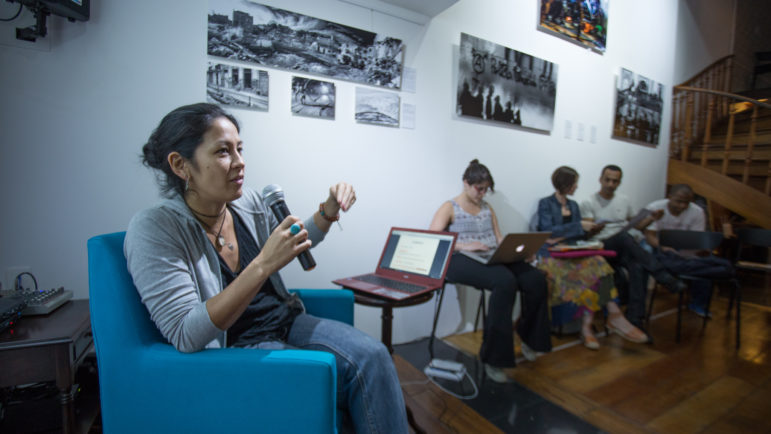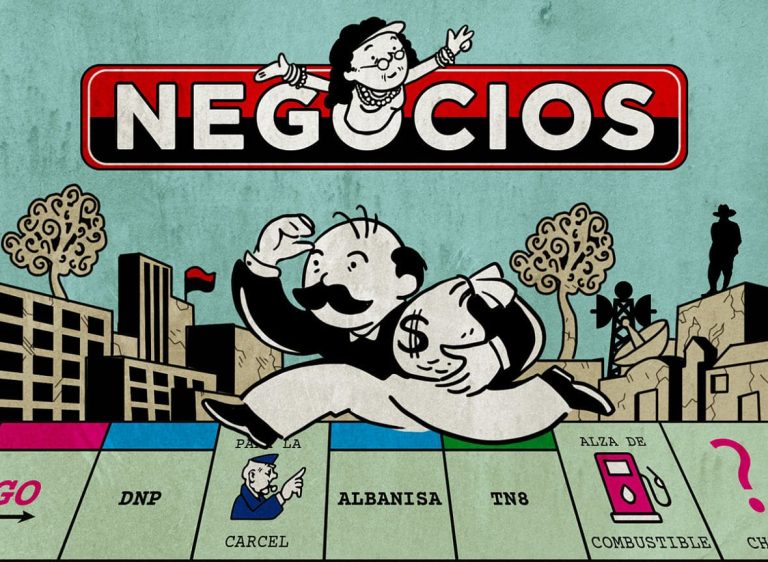

A Media Resource Center for the Rio Olympics

On Thursday, June 30, a group of journalists met at a house in Botafogo in the South Zone of Rio de Janeiro for a full day of training in the city’s access to information laws, followed by a debate on transparency in the context of the upcoming Olympics.
The event was the result of a collaboration between the newly-launched Casa Pública, a resource and cultural center run by nonprofit investigative journalism organization Agência Pública, and Artigo 19, the Brazilian branch of Article 19, a human rights organization focused on the defense and promotion of freedom of expression and information around the world.
“We wanted to do something before the Olympics on access to information, because so many people don’t know how the system works, and we were thinking of ways to help other journalists navigate the bureaucracy of Rio,” explained Mariana Simões, journalist and manager of Casa Pública. “There’s a lot of demand to understand the process, our rights as journalists, and the law of access to information.”

Casa Pública launched in March 2016 and has already become an important center for the city’s journalists. “The idea of this space is to create a location, a focal point for discussion and production of quality investigative journalism, where people can meet and talk about it in person,” said Simões.
The June 30 event was divided into three sections. In the morning, representatives from Artigo 19 and Agência Pública trained attendees on Rio de Janeiro’s access to information laws, and offered guidance in navigating the city’s online platform for submitting freedom of information requests.
“Rio de Janeiro, both the city as well as the state, has not invested much in implementation of the law of access to information, which went into effect in 2012,” said Mariana Tamari, a journalist and Access to Information officer at Artigo 19 and one of the event’s co-organizers.
The training led into a workshop, in which organizers provided a template for journalists to write their own information requests and offered one-on-one feedback on individual requests. Journalists in attendance drafted requests related to a range of topics, from forced evictions in communities like Vila Autódromo to public health statistics.
The workshop concluded with representatives from Casa Pública taking the requests in person to the Public Ministry of Rio de Janeiro for official submission. A team from Casa Pública filmed the submission and plans to follow the process over the next few months, to document the difficulties journalists face in accessing information from the city government.
“The really frustrating part is, even once you know what your rights are, it becomes about navigating bureaucracy,” said Simões.

About a dozen journalists participated over the course of the day, representing the national Globo network, the independent favela media collective Coletivo Papo Reto, and several other alternative media outlets.
“It’s fundamental that journalists have access to this information, because they are the ones that can help denounce [violations],” said Tamari. “We have a government that is not transparent, and the media plays an important role. It’s fundamental for the practice of journalism to have access to this information, and it’s important to take advantage of this period around the Olympics, when there is so much international press, too.”
Event organizers highlighted the importance of strengthening knowledge of the public right to information–not just for media, but for citizens and community groups as well.
“There is a lack of transparency and communication with the communities being affected by the transformations in the city,” said Simões. She recalled one woman in Campo Grande in the West Zone who found out that her house was slated to be demolished not from a city official, but by reading about it in a local publication.
“Access to information is fundamental: that the population knows what is happening, that they have access to public information, because they are the people who live with the effects” and legacy of mega-events like the Olympics, said Tamari.

The day concluded with a panel discussion between event organizers on the topics of access to information in Rio, especially in terms of public security, and transparency surrounding mega-events.
The panel, moderated by Agência Pública’s co-director, Natalia Viana, was made up of Tamari; Camila Marques, a lawyer and coordinator of Artigo 19’s Legal Reference Center in the area of Freedom of Expression and Access to Information; and Natália Damázio, a lawyer and researcher on institutional violence and public security for human rights NGO Justiça Global.
The panelists focused on two main themes: city and state government spending around public security, especially for policing and response to protests; and transparency (or lack thereof) on the part of public officials around construction projects related to the BRT (Bus Rapid Transit) system. The second topic was the subject of a recent Artigo 19 investigation.
All of the panelists spoke of the difficulties faced by journalists, activists, and regular citizens in attempting to exercise their right to access public information. Marques highlighted some of the challenges: agencies that simply ignored requests for information or acted as if they did not have the information; a website that is notoriously difficult to navigate, and even officials who responded defensively when asked to provide basic information about the actions of their agencies.
Since February, the Artigo 19 team has been working on an investigation into public spending on security for the Olympics. Yet, though the law mandates a response from government agencies within 30 days of receiving a request for information, Marques said there are still a number of pending requests that have never been acknowledged.
“There is an institutional culture of lack of transparency,” said Damázio. “It’s a systematic problem.”
If a request is ignored, journalists and citizens should be able to submit a formal complaint to the Public Ministry–but, according to Marques, that agency also has lack of transparency and corruption, despite being the government institution tasked with overseeing exactly those issues.

According to an Artigo 19 analysis, Rio de Janeiro currently ranks 19th among Brazilian states in terms of transparency and access to information. This position has remained fairly consistent in recent years, despite all of the money the state has received in the last decade to host these mega-events, said Tamari.
“We’ve spent five months requesting information from the state,” she said. “It’s surreal.”
The panelists also discussed city and state expenditures on security in preparation for the Olympics. The ominous amounts of money earmarked for counter-protest supplies like tear gas pose a clear threat to citizens’ freedom of expression.
“The state is preparing for repression,” said Marques. “People already know what is going to happen if they take to the streets.”
“This context of lack of transparency allows for the violation of all kinds of rights,” agreed Tamari.
The issue of transparency in public security is especially relevant for protesters who are detained for indefinite periods of time, and favela residents who are victims of violence at the hands of state security forces.
“Mega-events are major catalysts of human rights violations in the city. Each mega-event adds to this policy of violence,” said Damázio.
On Saturday, July 9, Casa Pública debuted a multimedia exhibit, “7 x 1 – Cinco anos de cobertura investigativa dos mega-eventos,” presenting the results of five years of ongoing investigation into the effects of mega-events by journalists from across Brazil and around the world.





 Natalie Southwick
Natalie Southwick



